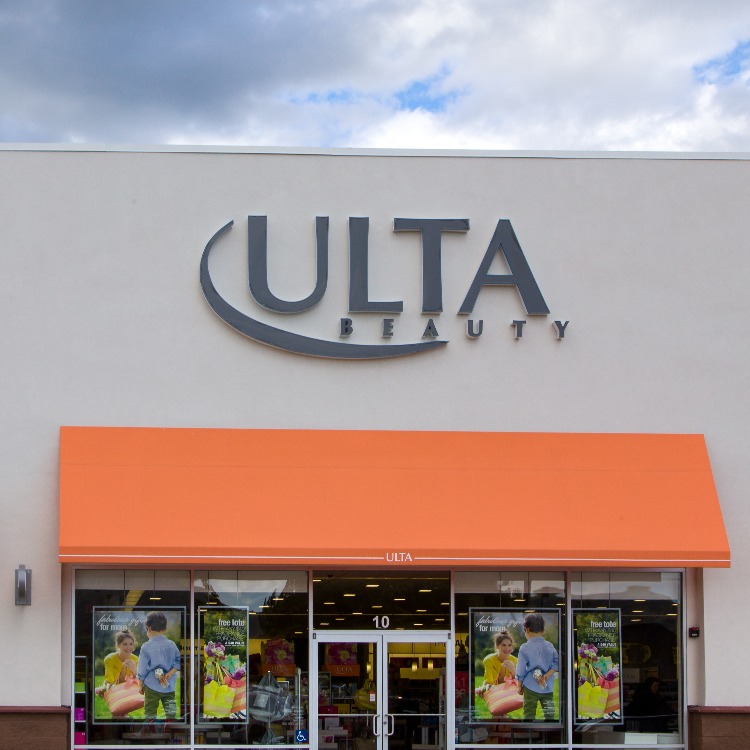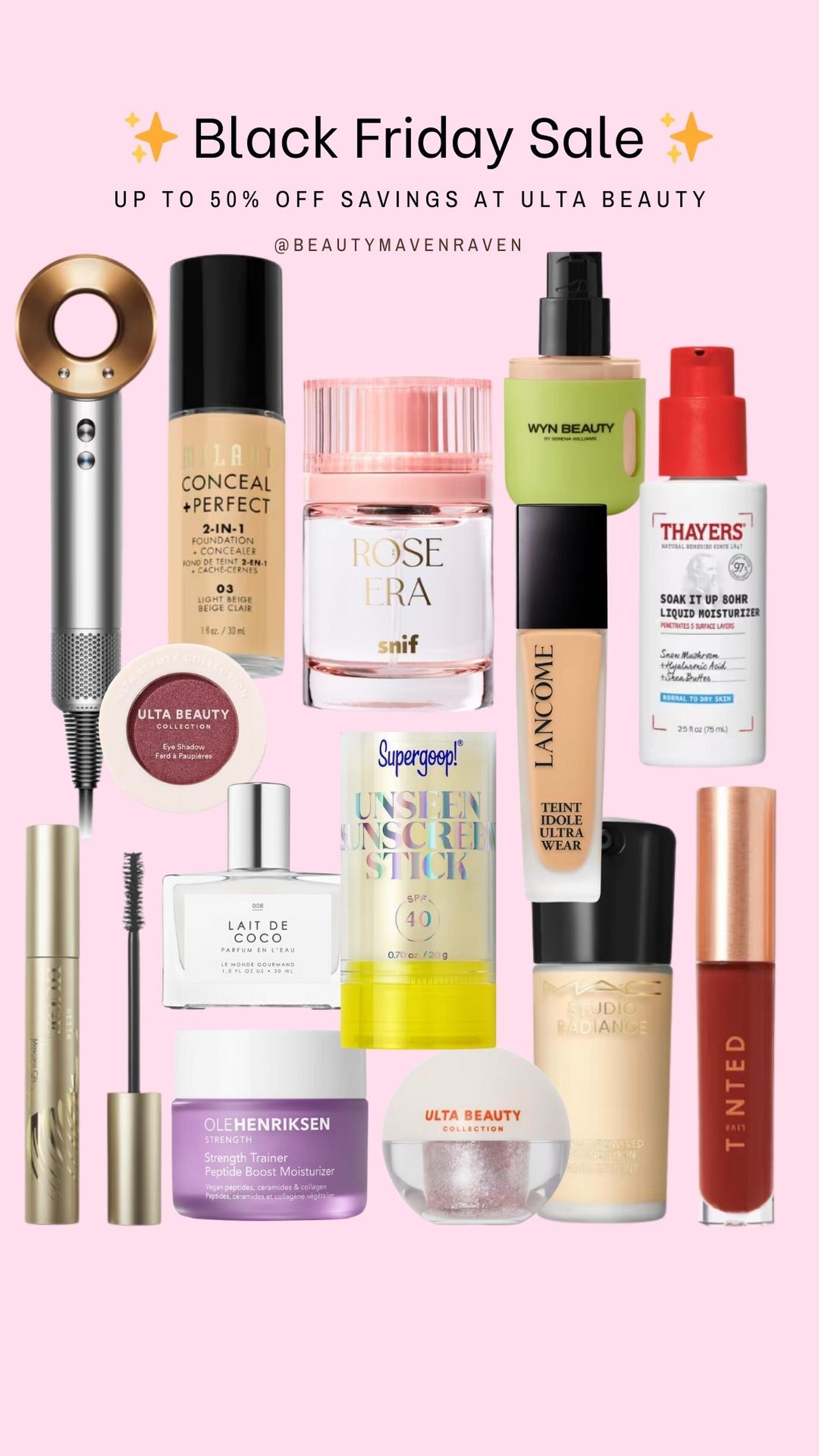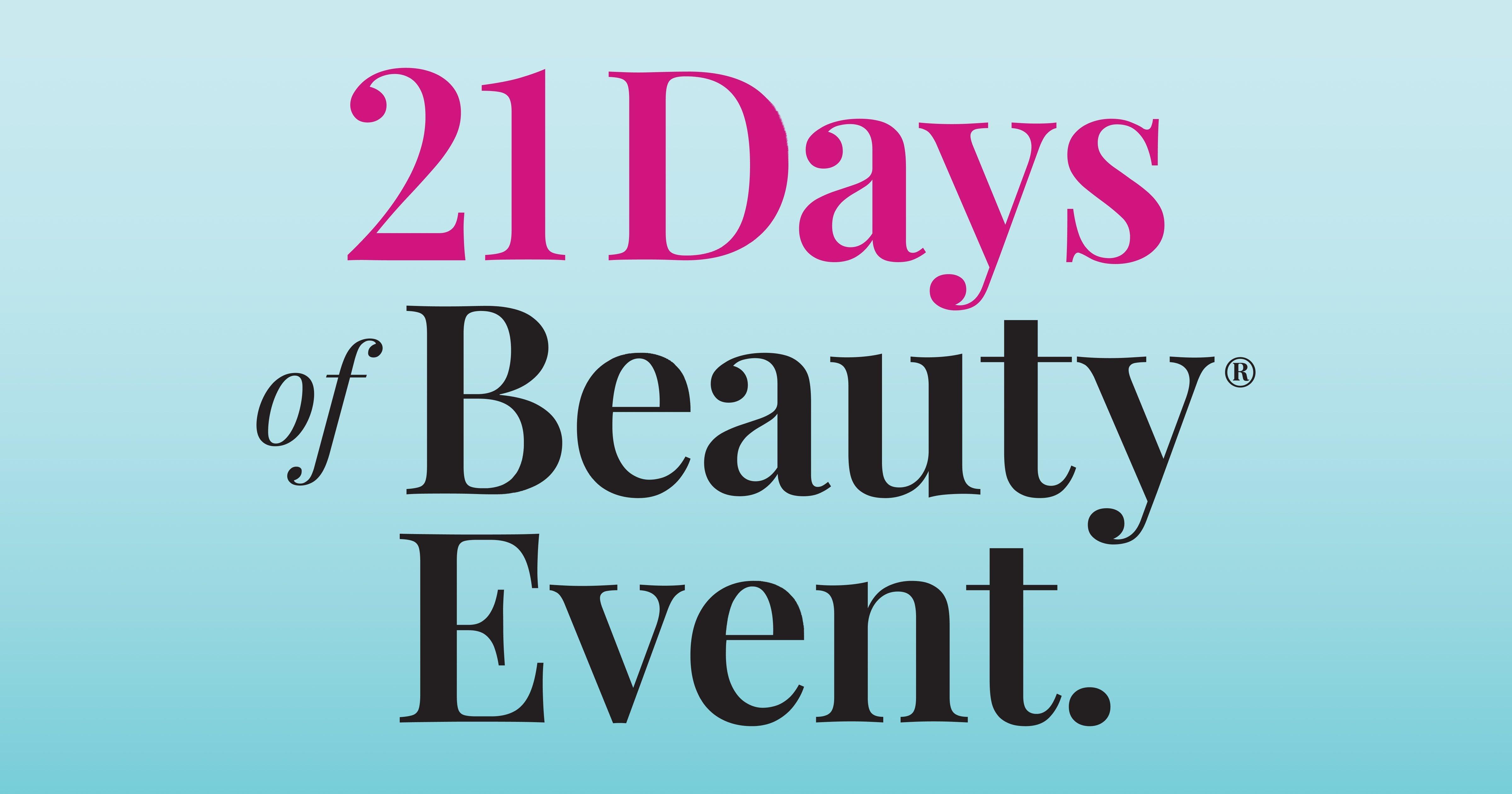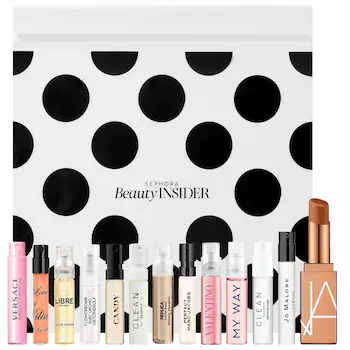Ulta wins on overall savings potential: Regular coupons, superior rewards (up to 6.25% back), and discount stacking create 3-5x more savings opportunities than Sephora
Product pricing flexibility gives Ulta the edge: Mix drugstore and prestige brands to build complete routines under $50, impossible at Sephora's luxury-focused stores
Rewards programs aren't even close: Ulta's cash back system returns $125 on $2,000 spending vs Sephora's $40, plus points never expire at higher tiers
Coupon stacking is Ulta's secret weapon: Combine manufacturer coupons + store coupons + sales + rewards in one transaction for maximum savings
Sephora excels at sampling, not savings: Generous try-before-you-buy policy adds value but doesn't reduce your actual spending
Neither store offers student, military, or professional discounts: Both retailers focus on universal loyalty programs instead of identity-based savings
Strategic timing matters at both stores: Ulta's 21 Days of Beauty (50% off) twice yearly vs Sephora's semi-annual sales (max 20% off for top members)
Shopping for beauty products doesn't have to break the bank, but knowing where to shop can make all the difference in your wallet. Ulta Beauty and Sephora dominate the beauty retail landscape, each offering thousands of products from drugstore favorites to luxury brands. But here's what every budget-conscious beauty lover wants to know: which store actually saves you more money?
While both retailers carry similar brands and products, their pricing strategies, reward programs, and money-saving opportunities differ significantly. Some shoppers swear by Ulta's frequent sales and generous point system, while others prefer Sephora's premium perks and exclusive offers.
In this comparison, we're cutting through the marketing noise to focus purely on the numbers. We'll examine everything from everyday pricing and reward programs to free samples and special discounts, giving you the data you need to maximize your beauty budget. Whether you're a makeup novice or a skincare enthusiast, this guide will help you shop smarter and spend less at whichever retailer comes out on top.
Price range and product selection
The most fundamental difference between Ulta and Sephora lies in their product mix and pricing philosophy. This distinction alone can determine which store fits your budget better.
Ulta's budget-friendly advantage

Ulta Beauty operates as a true beauty superstore, stocking everything from $3 lip balms to $80 foundation bottles under one roof. The store's genius lies in its dual approach — you'll find coveted high-end brands like Urban Decay and Tarte sitting right next to affordable drugstore favorites like e.l.f. and CeraVe.
This mix creates real money-saving opportunities:
Product variety at every price point: Choose between a $7 e.l.f. concealer or splurge on $31 Tarte Shape Tape in the same shopping trip
Complete routines under $50: Many shoppers build full makeup collections by strategically mixing drugstore and mid-range products
Instant budget flexibility: Swap expensive items for budget alternatives without leaving the store, making it easier to stick to spending limits
Access to drugstore exclusives: Find cult-favorite budget brands like The Ordinary, CeraVe, and Neutrogena alongside luxury options
Sephora's premium positioning

Sephora takes a different approach, focusing almost exclusively on prestige and luxury brands. Walk into any Sephora location and you'll notice the absence of true drugstore products. While Sephora Collection (their house brand) offers some mid-range options — like a $15 concealer compared to higher-end $30+ alternatives — the overall selection skews expensive.
This curated approach means your typical Sephora shopping trip feels pricier because you won't find those $5-10 budget alternatives that could round out your routine. Every product category starts at a higher price point, making it challenging to build an affordable makeup collection.
The pricing reality check
Price comparison | Ulta | Sephora |
Cheapest foundation | ~$6 (drugstore brands) | ~$25 (Sephora Collection) |
Budget concealer options | $3-12 (multiple brands) | $15+ (limited options) |
Lipstick range | $1-50+ | $15-60+ |
Complete routine minimum | Under $50 possible | $100+ typical |
For identical prestige products - think Urban Decay setting spray or Charlotte Tilbury lipstick - both stores charge the same manufacturer's suggested retail price (MSRP). The difference comes down to alternatives. At Ulta, you can substitute expensive items with comparable drugstore products. At Sephora, your only choice is between expensive and more expensive.
The bottom line: If stretching your beauty budget is the priority, Ulta consistently comes out ahead. The ability to mix drugstore steals with occasional splurges gives you control over your spending that Sephora's luxury-focused model simply can't match.
Coupons and sale discounts
Beyond product pricing, the real money-saving magic happens through coupons, sales, and promotional strategies. Here's where the two retailers take dramatically different approaches to helping customers save.
Ulta's coupon-friendly culture
 Courtesy of Ulta
Courtesy of UltaUlta has built its reputation on making coupons and discounts easily accessible to shoppers. The store consistently offers multiple ways to slash your total at checkout.
Regular coupon offerings:
$3.50 off $15 purchase: Available weekly through their app, website, and store flyers, usable multiple times by splitting larger purchases
20% off entire purchase: Periodic coupons that work on prestige brands during special promotional periods
BOGO deals: Year-round buy-one-get-one promotions on various product categories
"Buy more, save more" sales: Tiered discounts that increase with your spending amount
The stacking advantage: Ulta's biggest money-saving secret is coupon stacking. You can combine manufacturer coupons (like those newspaper clippings for L'Oréal or CoverGirl) with Ulta store coupons on the same purchase. This means you could potentially use a BOGO sale price, apply a manufacturer coupon, and then add Ulta's $3.50 store coupon all in one transaction — creating massive savings that can cut your bill in half.
Want to know every big sale events for Ulta? Read the 2025 Ulta Sale Calendar
Sephora's minimal discount approach

Sephora takes a much more restrictive approach to coupons and everyday discounts. The luxury retailer rarely offers traditional money-off coupons, instead focusing on sample promotions and limited-time offers.
Limited promotional options:
10% welcome discount: One-time offer for new customers who sign up for marketing texts
Credit card bonus: 15% off first purchase for new Sephora credit cardholders
Sample promotions: Free products with minimum purchase thresholds rather than money off
No manufacturer coupons: Sephora doesn't accept outside coupons, limiting your stacking opportunities
Sale events comparison
Sale feature | Ulta | Sephora |
Major sale frequency | Multiple times per year | Twice yearly |
Best discount offered | Up to 50% off (21 Days of Beauty) | Up to 20% off (Rouge members) |
Coupon stacking allowed | Yes | No |
Manufacturer coupons | Accepted | Not accepted |
Ulta's standout sales: The "21 Days of Beauty" event happens twice yearly with 50% off different products each day. Additional events like "Love Your Skin" in January and seasonal hair product sales provide regular opportunities for deep discounts.
Sephora's member-exclusive sales: Sephora's spring and fall sales offer tiered discounts based on membership level — 10% for Insiders, 15% for VIB, and 20% for Rouge members. While helpful, these percentages rarely match Ulta's promotional depth.
Price matching policies
Neither store excels at price matching, but there are some differences worth noting. Ulta doesn't price match competitors at all - they'll only match their own online pricing if it differs from in-store prices within 14 days. Sephora offers limited price matching with select luxury retailers like Nordstrom and Saks, but only on regular (non-sale) prices within 7 days. In practice, this policy provides minimal savings since most price differences occur during sales, which Sephora won't match.
The coupon verdict: Ulta wins decisively in the discount department. Between frequent coupons, stackable savings, and deeper sale percentages, strategic Ulta shoppers can regularly save 30-50% on their purchases. Sephora's approach favors exclusivity over affordability, making everyday discounts much harder to come by.
Rewards programs: Ulta Ultamate Rewards vs. Sephora Beauty Insider
Both retailers offer free loyalty programs, but they take fundamentally different approaches to rewarding customer spending. One focuses on direct cash back, while the other emphasizes perks and exclusive access.
Ulta Ultamate Rewards: Cash back that actually saves money
 Courtesy of Ulta
Courtesy of UltaUlta's loyalty program stands out for its straightforward approach - points equal real money off your future purchases. Every dollar spent earns one point at the base level, but the magic happens in how those points convert to savings.
Point redemption value:
100 points = $3 off (3% return)
500 points = $17.50 off (3.5% return)
2,000 points = $125 off (6.25% return)
The key advantage is that Ulta points work like cash and can be stacked with coupons and sales. Imagine using a 20% off coupon, shopping a BOGO sale, and then applying $17.50 in points - the savings compound dramatically.
Tier benefits that boost savings:
Platinum status ($500+ annual spend): Earn 1.25 points per dollar, plus points never expire
Diamond status ($1,200+ annual spend): Earn 1.5 points per dollar, free shipping on $25+ orders, and $25 annual salon credit
Birthday perks: Free gift, double points all month, and $10 off coupon for higher tiers
Ulta frequently runs bonus point events (2x, 5x points on specific days or categories), helping you reach those higher redemption tiers faster. Their credit card adds another layer, offering 2x points on all Ulta purchases plus a 20% welcome discount.
Sephora Beauty Insider: Perks over savings

Sephora's program takes a different philosophy, focusing on exclusive experiences and sample-sized rewards rather than direct discounts. While you still earn 1 point per dollar spent, the redemption options tell a different story.
Limited cash-back options:
500 points = $10 off (2% return only)
Must redeem minimum 500 points at once
Most members choose sample products instead of cash discounts
Tier-based perks:
VIB status ($350+ annual spend): 15% off semi-annual sales, free shipping on $35+
Rouge status ($1,000+ annual spend): 20% off semi-annual sales, free shipping on all orders
Exclusive access: Early sale access, special events, and curated reward products
Rewards comparison | Ulta | Sephora |
Best cash-back rate | 6.25% (2,000 point tier) | 2% (500 point minimum) |
Point stacking with sales | Yes | No |
Points expire | Only at base level | After 18 months of inactivity |
Credit card bonus | 2x points + 20% welcome | 4x points + 15% welcome |
Free shipping threshold | $50 (Diamond: $25) | $50 (Rouge: no minimum) |
The birthday benefit breakdown
Both programs offer birthday perks, but with different approaches:
Ulta birthday month:
Free birthday gift product
Double points on all purchases for the entire month
$10 off coupon (Platinum/Diamond members)
Sephora birthday benefit:
Choice of mini gift sets or bonus points
One-time use during birthday month
No spending bonuses
Which program saves you more money?
The math is clear: Ulta's program delivers significantly more value for budget-conscious shoppers. A customer spending $2,000 annually would earn $125 back at Ulta versus just $40 at Sephora when redeeming points for cash. Factor in Ulta's ability to stack point redemptions with other discounts, and the savings gap widens even further.
Sephora's program appeals more to beauty enthusiasts who value exclusive access and sample products over direct savings. If you prefer trying new products and enjoy VIP treatment, Sephora's perks have their appeal. But for pure money-saving potential, Ulta's cash-back approach wins decisively.
The rewards winner: Ulta's program returns 3-6x more value to your wallet compared to Sephora's 2% cash-back option, making it the clear choice for budget-focused beauty shoppers.
Free samples, gifts and extras
Beyond direct savings, both stores offer freebies that add value to your purchases. However, their approaches to samples and gifts differ significantly in both quantity and accessibility.
Sephora's sample superiority
Sephora has built its reputation as the place to try before you buy, and their sampling policy reflects this philosophy. The store makes it genuinely easy to test products without commitment.
In-store sampling perks:
Custom samples on demand: Ask any beauty advisor for up to 3 free samples per visit of almost any product on the sales floor
Foundation matching: Get color-matched samples to take home and test in different lighting
Fragrance trials: Sample expensive perfumes before committing to full bottles
Skincare testing: Try serums, moisturizers, and treatments for several days before purchasing
Online sample benefits:
Two free samples: With every online order from a rotating selection
Promo code samples: Weekly codes like "FREEMASK" for deluxe samples with minimum purchase
Sample bags: Free multi-product sample sets with orders over $50
Birthday gifts: Annual choice of mini sets from popular brands for all members
Ulta's strategic sampling approach
Ulta traditionally lagged behind Sephora in sampling, but they've made strategic improvements while focusing more on gift-with-purchase promotions.
Current sampling options:
Weekly member samples: New kiosk system lets Ultamate Rewards members scan their account for one free sample per week (select stores only)
Online samples: Two free sample packets with online orders, though selection is often limited
Gift-with-purchase promotions: Frequent offers like "free 10-piece sample bag with $70 purchase"
Brand-specific samples: Prepackaged samples from prestige brands during promotional periods
Where Ulta struggles:
No custom sampling: Store associates typically can't create samples on demand like Sephora
Limited in-store options: Most locations don't offer routine take-home samples unless it's a specific promotion
Inconsistent availability: Samples may be substituted or omitted when out of stock
The value comparison
Sample feature | Ulta | Sephora |
Custom in-store samples | Not available | Up to 3 per visit |
Online samples per order | 2 packets | 2 packets |
Weekly sample program | 1 per week (select stores) | Not available |
Gift-with-purchase frequency | Very frequent | Moderate |
Foundation color matching | Limited | Extensive |
Strategic considerations for budget shoppers
While Sephora clearly wins on sampling quantity and convenience, there's an important budget consideration: samples don't reduce your actual spending. They add value through free products, but your receipt total stays the same.
Sephora's sampling advantage works best for:
Shoppers who want to test expensive products before buying
Beauty enthusiasts who enjoy trying new formulas
People with sensitive skin who need to patch-test products
Those building a collection of travel-sized products
Ulta's approach appeals to:
Shoppers who prefer substantial gift-with-purchase deals over small samples
Budget-conscious buyers who'd rather earn cash back than accumulate minis
Customers who know what they want and don't need extensive testing
The bottom line on freebies
Sephora excels at giving you more products to try, which can prevent costly mistakes and help you discover new favorites. Their generous sampling policy genuinely adds value to the shopping experience and can save money in the long run by helping you avoid products that don't work.
Ulta's strategy focuses more on promotional gifts and their superior rewards program that actually puts money back in your wallet. While you might not walk out with as many free samples, you'll accumulate points that translate to real savings on future purchases.
The samples verdict: Sephora wins for immediate gratification and try-before-you-buy value, but Ulta's cash-back rewards program may deliver more long-term financial benefit than a collection of sample containers.
Other discounts and policies (student, military, pro)
Beyond standard promotions, many shoppers look for specialized discounts based on their status or profession. Unfortunately, both retailers take a minimal approach to these additional savings opportunities.
Student discounts: Neither store offers them
Despite students being a key demographic for beauty spending, both Ulta and Sephora have chosen not to offer ongoing student discount programs in the U.S. market.
The current reality:
Ulta Beauty: No student discount program exists; students must rely on regular coupons and promotions
Sephora U.S.: No ongoing student discount available, though some international markets have limited partnerships with Student Beans or UNiDAYS
Student alternatives: Your best savings strategy remains maximizing loyalty programs and timing purchases around major sales
Military discounts: Also not available
Active duty service members, veterans, and military families won't find dedicated discounts at either retailer as a standard policy.
Military savings options:
Ulta Beauty: No official military discount program
Sephora: No military discount policy in place
Rare exceptions: Individual store locations in military communities might occasionally offer courtesy discounts, but this isn't company policy
Alternative approach: Both companies point military shoppers toward their regular promotional offers and loyalty rewards
Professional discounts: Limited to employees only
Licensed beauty professionals like cosmetologists, makeup artists, and estheticians often expect industry discounts, but both retailers restrict professional pricing to their own employees.
Professional discount breakdown:
Sephora: No professional discount program for licensed beauty professionals (confirmed by company representatives)
Ulta Beauty: Only offers pro discounts to their own salon employees (25% employee discount), not available to outside professionals
Brand-specific programs: Individual beauty brands may offer pro discounts, but these don't apply at the Ulta or Sephora register
Workaround: Beauty professionals benefit most from maximizing rewards programs and strategic sale timing
Discount stacking policies
The ability to combine multiple offers can significantly impact your total savings, and this is where the two stores differ dramatically.
Stacking feature | Ulta | Sephora |
Store coupon + manufacturer coupon | Yes | N/A (no manufacturer coupons accepted) |
Coupon + sale price | Yes | Limited |
Points redemption + coupon | Yes | No |
Multiple promo codes online | Limited | One code only |
Rewards + member sale discount | Yes | Depends on promotion |
Ulta's stacking advantages:
Combine manufacturer coupons with Ulta store coupons on the same purchase
Apply store coupons on top of existing sale prices
Redeem rewards points while using coupons in the same transaction
Layer multiple savings strategies for maximum discount
Sephora's restrictions:
Only one promo code allowed per online order
Must choose between discount codes and free sample codes
Limited ability to combine member sale discounts with other offers
Generally restrictive approach to stacking any promotions
Price adjustment policies
What happens when an item you just bought goes on sale? Both stores handle post-purchase price drops differently.
Ulta's workaround approach:
No formal price adjustment policy
60-day return window creates an opportunity - return and repurchase items that go on sale within this timeframe
Effectively allows you to get sale pricing on recent purchases
Requires monitoring prices and making a trip to the store
Sephora's case-by-case basis:
No clearly advertised price adjustment policy
Customer service may issue credits for price drops within a few weeks of purchase
Not guaranteed - depends on timing, product, and customer service representative
Worth asking, but don't count on it
The special discounts verdict
Neither Ulta nor Sephora excels at providing specialized discounts for students, military, or beauty professionals. Both retailers instead focus their savings efforts on universal programs like loyalty rewards and seasonal sales that benefit all customers.
However, Ulta's superior stacking policies give it an edge for shoppers who want to maximize every possible discount. The ability to combine manufacturer coupons, store coupons, sale prices, and points redemptions in a single transaction can create substantial savings that Sephora's one-code policy simply can't match.
Bottom line: If you're looking for identity-based discounts, you'll be disappointed at both stores. But if you want to stack multiple savings strategies, Ulta's flexible approach wins over Sephora's restrictive policies.
Who saves you more – Ulta or Sephora?
After comparing every aspect of these beauty retail giants from a pure money-saving perspective, the winner is clear: Ulta Beauty consistently offers more opportunities to save money than Sephora.
The savings scorecard
Let's recap how each store performed across our key money-saving categories:
Where Ulta dominates:
Product pricing: Mix of drugstore and prestige brands allows complete routines under $50
Coupon availability: Regular $3.50 off $15 coupons, 20% off promotions, and BOGO sales
Discount stacking: Combine manufacturer coupons, store coupons, sales, and rewards in one transaction
Rewards value: Earn up to 6.25% back in usable cash with points that never expire at higher tiers
Sale frequency: Multiple major sales per year with discounts up to 50% off
Where Sephora falls short:
Restrictive stacking: One promo code maximum, limited combining of offers
Lower rewards value: Only 2% cash back through Beauty Insider Cash option
Higher price floors: Minimal drugstore alternatives mean higher spending minimums
The real-world savings difference
Consider a typical beauty shopper spending $500 annually:
At Ulta:
Earn 500-625 points (depending on tier status)
Redeem for $17.50-$19 in cash back
Plus regular coupon savings of $50-100+ per year
Total potential savings: $70-120+ annually
At Sephora:
Earn 500 points
Redeem for $10 in cash back
Limited coupon opportunities
Total potential savings: $15-25 annually
When Sephora might be worth it
Sephora isn't without merit for certain shoppers. Choose Sephora if:
Product discovery matters most: Extensive sampling program helps avoid costly mistakes
You prefer luxury experiences: Premium store environment and exclusive brand access
Brand loyalty drives purchases: Exclusive products and early access to new releases
Convenience over savings: You'd rather pay more for a curated, hassle-free experience
The final verdict
For budget-conscious beauty lovers, Ulta Beauty is the clear winner. The combination of affordable product options, frequent coupons, superior rewards earning, and discount stacking creates a savings ecosystem that Sephora simply can't match.
Ulta makes saving money a routine part of every shopping trip through regular promotions and flexible policies. Sephora treats discounts as special events, limiting your opportunities to save throughout the year.
Smart shopping tips for maximum savings
Regardless of which store you choose, maximize your savings by:
Joining loyalty programs: Both offer free membership with immediate benefits
Timing major purchases: Plan around semi-annual sales and special events
Using welcome offers: Take advantage of new customer promotions and birthday gifts
Following store communications: Email newsletters and apps provide exclusive coupon access
The bottom line: While both stores have their place in the beauty retail landscape, Ulta's commitment to affordable options and multiple saving opportunities makes it the superior choice for anyone prioritizing their beauty budget over luxury experiences. Your wallet will thank you for choosing substance over prestige.
How we get this data: Promo code data is sourced from ShopGraph, our proprietary knowledge system that continuously monitors 400,000+ stores. Every code is verified through our dual AI and community testing process.
Looking for the latest Ulta and Sephora promotions? Find verified Ulta promo codes here and find the latest Sephora promo codes here

by Sean Fisher
AI Content Strategist · Demand.io
Sean Fisher is an AI Content Strategist at Demand.io, where he leads content initiatives and develops an overarching AI content strategy. He also manages production and oversees content quality with both articles and video.
Prior to joining Demand.io in September 2024, Sean served as a Junior Editor at GOBankingRates, where he pioneered the company's AI content program. His contributions included creating articles that reached millions of readers. Before that, he was a Copy Editor/Proofreader at WebMD, where he edited digital advertisements and medical articles. His work at WebMD provided him with a foundation in a detail-oriented, regulated field.
Sean holds a Bachelor's degree in Film and Media Studies with a minor in English from the University of California, Santa Barbara, and an Associate's degree in English from Orange Coast College.




